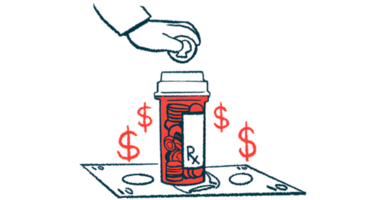Music Therapy Can Be Just What the Doctor Ordered

I never realized the benefits of music until I was diagnosed with Parkinson’s disease.
Early in my diagnosis, I met Alexander Pantelyat, MD, co-director of the Johns Hopkins Center for Music and Medicine, who introduced me to both music and dance. Together with boxing and other exercises, music and dance are important tools in my Parkinson’s toolbox.
Recently, Pantelyat offered a webinar titled “Music as Medicine.”
According to Pantelyat, “Music has been an integral part of the human experience as long as humanity has been around. It’s been intuitively felt to have healing properties, but now we are in a position to study the mechanisms and optimize music-based interventions.”
Sarah Hoover, DMA, who also co-directs the center, added: “It’s fascinating and powerful to think that music, something that has been floating around in our environment forever, that this natural, omnipresent human activity has demonstrable benefit as treatment.”
The brain and music
We all know that music gets our bodies moving when we hear a catchy tune. Our toes start tapping, or we do a little twist, but it’s more than just movement. Actually, all areas of the brain respond differently to music, as you can see with this handy graphic from the University of Central Florida.
Music therapy is a complementary treatment being used for Parkinson’s. Following are a few of researchers’ findings on the topic:
- Listening to music and playing an instrument develop both motor skills and cognitive abilities. It’s a total brain workout, John Dani, PhD, told Penn Medicine News’ Sally Sapega.
- Music can be a tool to manage blood pressure, anxiety, pain, and also to improve memory, sleep, and mood.
- Singing can be beneficial for your voice and your speech.
So, keep singing in the shower and jamming in the car. If you happen to be stuck in traffic, play that dashboard drum solo!
Drumming, boxing, and dancing
Parkinson’s brings both motor and nonmotor symptoms that create a unique set of challenges for each of us. Yet, despite our differences, music and dance can be enjoyed by everyone. In our boxing class, we incorporate everything from line dancing and drumming to a boxing combination with a dance step.
Consider the following:
- Can you imagine using tango music with a metronome to ease freezing? The rhythmic cuing facilitates movement. I have seen it work!
- How about using a fox trot cadence with focus mitts? A client with Lewy body dementia and I would fox trot around the room, and I had the added challenge of walking backward as he punched the mitts.
- The waltz cadence of “Hit 1-2-3, Hit 4-5-6” establishes a rhythm for a speed bag workout.
Music is exercise for your brain, body, and voice. Try it! Turn on some good music, sing a tune, punch a bag, or dance. You may have fun and discover that there’s no wrong way to dance.
My husband, Mike, and I have decided that you can “Do the Hustle” to just about anything. And when all else fails, we make it up and call it “The Mikey.” It’s great to do with friends, as the camaraderie is an added bonus!
***
Note: Parkinson’s News Today is strictly a news and information website about the disease. It does not provide medical advice, diagnosis or treatment. This content is not intended to be a substitute for professional medical advice, diagnosis, or treatment. Always seek the advice of your physician or another qualified health provider with any questions you may have regarding a medical condition. Never disregard professional medical advice or delay in seeking it because of something you have read on this website. The opinions expressed in this column are not those of Parkinson’s News Today or its parent company, Bionews, and are intended to spark discussion about issues pertaining to Parkinson’s disease.







Paulraj
I totally agree that music therapy is a good exercise and experience.
I started learning Guitar at my 76 and I find a good exercise to my brain and fingers.
I have PD and my doctor encourages that I should also sing songs.
Lori DePorter
Great to hear! I did a study with guitar lessons. It was quite challenging. You can check out my take on the experience at https://ladpdjourney2.wordpress.com/2018/06/03/da-da-doink/
Lori